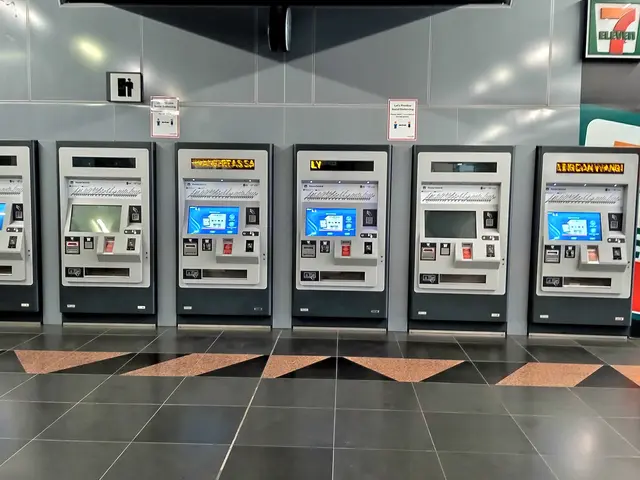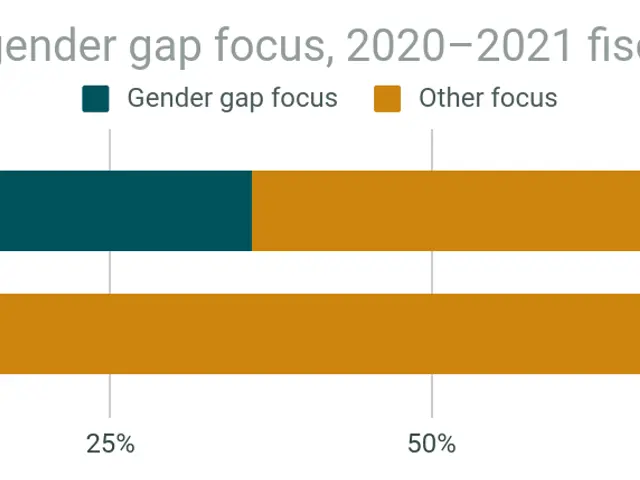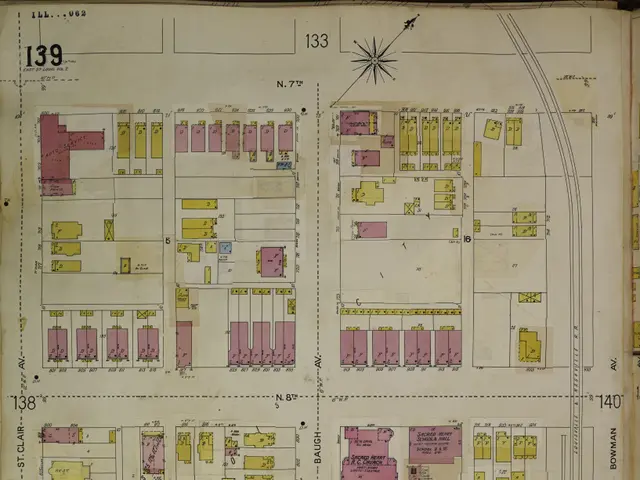"In the first half of the year, Estonia's digital residents surpassed revenue expectations for the state by a factor of two"
In a remarkable turn of events, the Estonian e-Residency programme has witnessed a significant surge in economic growth and activity. According to recent reports, the total economic contribution of the programme in 2024 reached approximately 260 million euros, marking a substantial increase from the previous year.
The e-Residency Marketplace platform, a key component of the programme, has been a major catalyst for this growth. Companies operating on this platform generated €15.51 million in revenue from serving e-residents alone in 2024, representing a 36% increase from the prior year. Notably, serving e-residents now accounts for more than half of the total business activity of an increasing number of these companies.
Tax revenue has been a significant contributor to the programme's economic impact. In the first six months of 2025, tax revenue accounted for 97% of the total economic impact, totalling €65.9 million. Of this, nearly 40% came from labour taxes, and 60% from special income tax (mainly from dividends).
Liina Vahtras, Managing Director of the e-Residency programme, hailed the first half of 2025 as a record year for the programme in terms of economic impact, new applications, and companies created. A total of 7,994 e-resident digital ID applications were received from January to the end of June, and 2,634 new companies were created by e-residents during this period, which was 23% and 8% more than during the same period last year, respectively.
The e-Residency programme, established on 1 December 2014, has since attracted over 128,000 people from 185 countries. E-residents tend to appreciate the ease and clarity of Estonian e-services, with the fastest growing companies often being those owned by younger e-residents aged 18-29.
E-residents are not just consumers of services; they are also significant investors. The interest in investment, particularly due to deferred corporate income tax, is a testament to the programme's appeal.
Xolo, the market leader of the e-Residency Marketplace platform, has played a pivotal role in this growth. They have developed a platform for serving e-residents and other clients that automates invoicing and report generation, and increasingly uses AI.
The e-Residency programme is not resting on its laurels. It is focusing on targeted sales efforts in countries with the greatest market potential, including France, Italy, Germany, the UK, and Latin America. The development of a mobile remote identification solution for e-Residency, planned for 2027, will further enhance the programme's technological security and streamline the application process.
E-residents continue to be most willing to pay for a personal approach and clear advice, while clients' expectations for smart, automated solutions that save time are growing stronger. As the programme continues to evolve, it remains committed to its primary goal: to grow Estonia's economy and benefit the Estonian state.
Read also:
- Peptide YY (PYY): Exploring its Role in Appetite Suppression, Intestinal Health, and Cognitive Links
- Toddler Health: Rotavirus Signs, Origins, and Potential Complications
- Digestive issues and heart discomfort: Root causes and associated health conditions
- House Infernos: Deadly Hazards Surpassing the Flames








